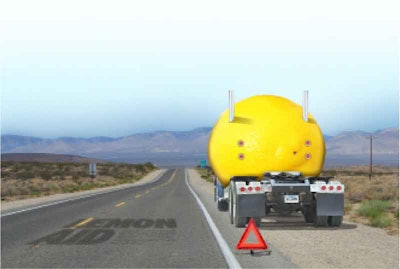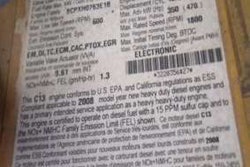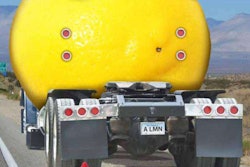Republican Joel Anderson has introduced SB 713 in the California state senate, a bill that would if enacted amend California’s lemon law to include commercial trucks in its matrix of protections for new-unit buyers experiencing chronic malfunctions in the early life of the vehicle. The bill, which originated in part with the Western States Trucking Association (WSTA) in response to member complaints about undue downtime with emissions-equipment failures, would make California one of only two states that offer significant legal protections to commercial new-truck buyers (as is somewhat well-known, Wisconsin’s lemon law is unique nationally in covering commercial trucks in a significant way).
“Like a lot of states, California has a lemon law that protects car buyers,” notes WSTA Director of Governmental Affairs Joe Rajkovacz, called the Tanner Consumer Protection Act. Originally a native of Wisconsin, Rajkovacz is well aware that his native state’s “lemon law extends to purchasers of new commercial vehicles.”
SB 713 would modify the current California lemon law to newly apply to trucks heavier than 10,000 lbs. and under the operation of a business, without size exclusions, up to 18 months from the date of delivery or 100,000 miles of operation, whichever comes first. For the lemon law to come into play, the law requires at least one of the following three conditions to have been met:
- A maintenance issue covered under warranty “results in a condition that is likely to cause death or serious bodily injury if the vehicle is driven and the [issue] has been subject to repair two or more times by the manufacturer or its agents,” with direct buyer notification to the manufacturer of the issue.
- Four attempts to address the same maintenance issue, with buyer notification to the manufacturer.
- Repair downtime of more than 30 calendar days since vehicle delivery, with some other conditions.
Readers can access the bill’s current full text via this link.
Overdrive covered the national picture around lemon law in 2011, in part in the context of the then-increasing “maintenance nightmare” scenarios, in the words of one source, some new-truck buyers were experiencing with emissions-system equipment. In some ways, little has changed in that respect.
 Read Overdrive‘s 2011 story about the national picture around large truck lemon law via this link.
Read Overdrive‘s 2011 story about the national picture around large truck lemon law via this link.Small fleet owner Bill Frerichs of Frerichs Freight Lines, based in Illinois near St. Louis, Mo., wrote in last month about an issue with one of two new tractors he’d purchased in 2015, “one in June, one in December, exact same truck” in terms of make and model, he said. “The one delivered in June has been in the dealer’s shop more than 50 days for abnormal major issues while the second has been in one time for a steering column recall.” In terms of the first truck, he added, “I don’t trust it, nor does the driver.”
The problem unit stood at about 130,000 miles in 18 months when Frerichs wrote in. Given his state’s lemon law doesn’t offer buyer protection from such situations, unless he can work it out with the dealer he’s “stuck with it for the next two-three years,” he notes. “Every day it’s in the shop, I rent a truck for $125 per day, which is nearly triple what I’m paying for my own truck.”
In California, Rajkovacz notes, another wrinkle in the situation is recent California Air Resources Board meetings that have broached the subject of potentially mandating expanded warranty coverage periods for emissions equipment to force manufacturers to fail-proof sensors and other equipment more substantially. “In the end, it’s kind of a good deal if CARB moves forward with EPA to extend warranty coverage on emissions components,” Rajkovacz says, “but that does nothing for a truck owner that’s in the shop multiple times throughout the year” and experiences significant downtime. “‘Mr. owner-operator, we won’t get your truck to you in 10 days,'” Rajkovacz says.
Expanding lemon law protections could give such buyers a recourse in the worst of maintenance situations, Rajkovacz says.
Truck manufacturers contacted for this story either offered no comment or did not respond in time to be included.
“We understand it’s a David v. Goliath fight,” Rajkovacz says.”There have been other attempts in the past that have been pulled back” as truck makers and others have flexed influence.
Currently scheduled for May 9 according to the page for the bill on California’s legislative information website, a public hearing in Sacramento should at least expand lawmakers’ awareness of the issues. “We’re going to be very dependent on new-vehicle owners coming out and telling their downtime horror stories,” Rajkovacz says. “There is resistance to believing that any of that is true. We’re going to have to do some significant arranging and prodding to get people to show up for this.”
If they don’t, he believes, it could be years before there’s another chance to take the idea forward.










